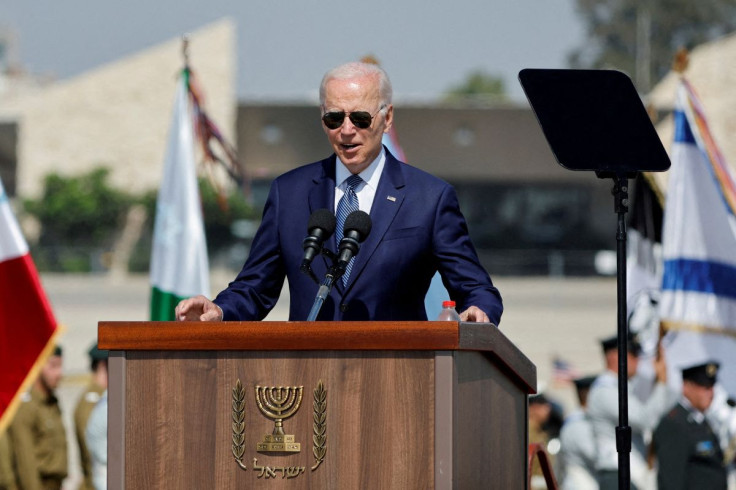Boeing Says 'Lessons Learned' From Costly Air Force One Deal

Boeing's defense chief said on Sunday it had learned lessons from a contract to supply the U.S. presidency with new Air Force One aircraft, which has cost the planemaker almost $1 billion in charges and is up to three years behind schedule.
Ted Colbert did not give details of learnings, but said they had contributed to a new schedule for the two planes that has seen deliveries pushed back to 2026 and 2027.
"The lessons learned are important to us and we're applying them going forward," Colbert told reporters at a briefing ahead of the Farnborough air show. "We've made changes to the program. We've made changes to the way we work on the program."
"These are challenging programs and you learn as you go along and you adapt as you have to," he added.
In April, Boeing recorded a $660 million charge after taking a $318-million one in April 2021 on the program "largely due to COVID-19 impacts and performance issues at a key supplier."
Asked if Boeing could recoup those cost overruns, Colbert said: "If we can find a way to we will."
Boeing received a $3.9 billion contract in 2018 for two 747-8 aircraft to be delivered starting in 2024.
In December 2016, then U.S. President-elect Donald Trump secured a promise from then Boeing CEO Dennis Muilenburg that the cost of replacing Air Force One would not exceed $4 billion. Trump had earlier urged the government to cancel buying Boeing's new Air Force One, saying it was "ridiculous" and too expensive.
Boeing CEO Dave Calhoun said in April the deal was problematic.
"Air Force One - I'm just going to call a very unique moment, a very unique negotiation, a very unique set of risks that Boeing probably shouldn't have taken," Calhoun said. "But we are where we are, and we're going to deliver great airplanes. And we're going to recognize the costs associated with it."
The Boeing 747-8s are designed to be an airborne White House able to fly in worst-case security scenarios, such as nuclear war, and are modified with military avionics, advanced communications and a self-defense system.
© Copyright Thomson Reuters {{Year}}. All rights reserved.





















